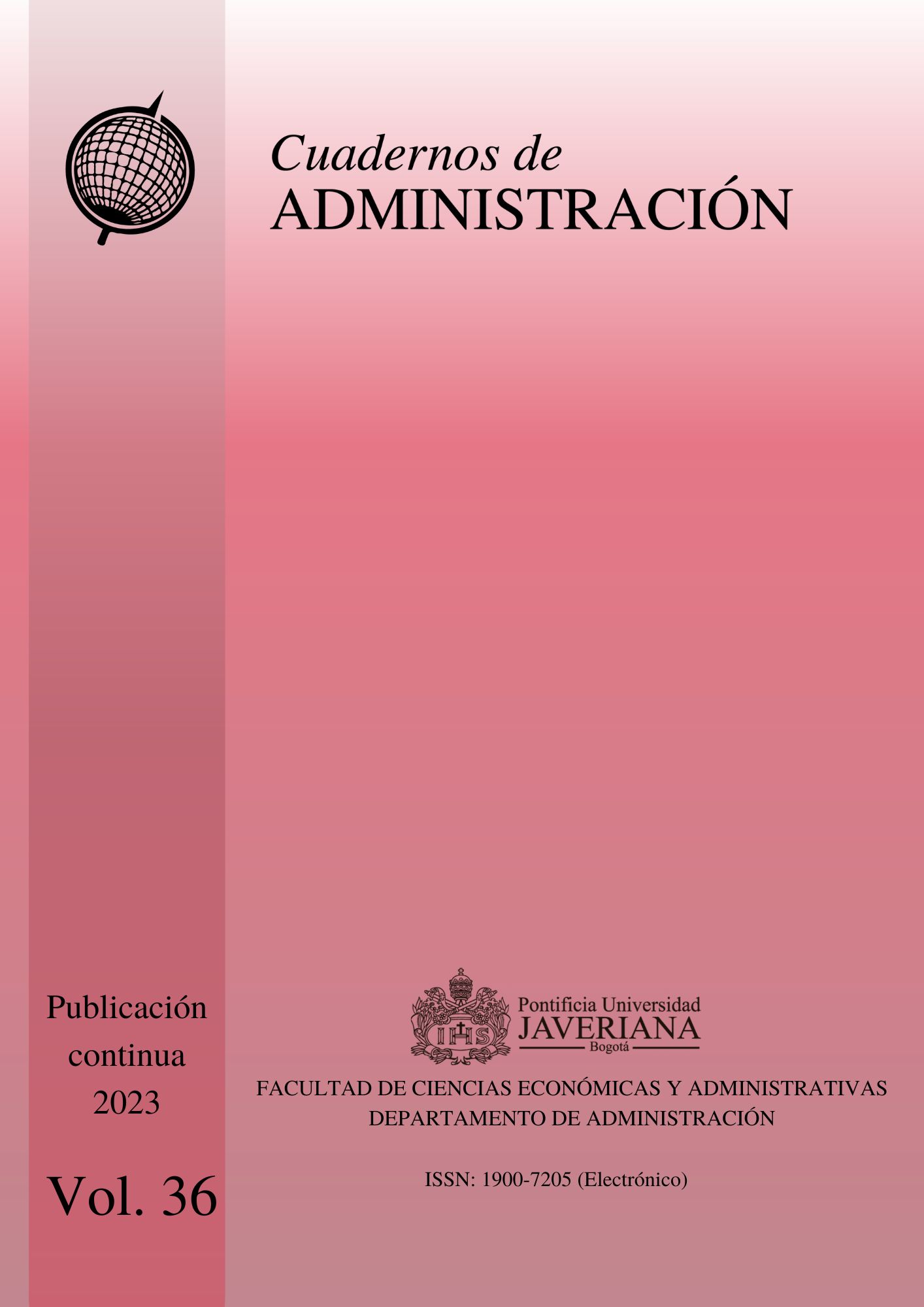Resumen
Este artículo tiene el propósito de comprender, a partir de las lógicas institucionales, los factores que hacen parte de la relación médico-paciente desde la percepción del médico, en el área de consulta externa de una institución de salud en la ciudad de Cali. En el desarrollo de la investigación se utilizó una metodología cualitativa de tipo exploratorio-descriptivo, por medio de 23 entrevistas a médicos generales, que fueron analizadas con el enfoque sistémico de datos cualitativos de la Teoría Fundamentada. La evidencia empírica, permitió identificar los factores recurrentes e interrelaciones de las diferentes lógicas que intervienen en la relación médico-paciente, agrupándolas en cuatro dimensiones: médica, organizacional, social y educativa. La interacción entre todas las lógicas institucionales refleja la complejidad de la relación médico-paciente y la necesidad de gestionarla de manera multidireccional. Esta investigación contribuye a la literatura en gestión, más específicamente las lógicas institucionales que permiten dilucidar la percepción de uno de los grupos de actores involucrados en las actividades diarias que intervienen en la relación médico-paciente, como voces de las múltiples lógicas en competencia involucradas

Esta obra está bajo una licencia internacional Creative Commons Atribución 4.0.
Derechos de autor 2024 Viviana Andrea Gutierrez Rincon, Diana Gil-Triana, Daniela Largacha-González


